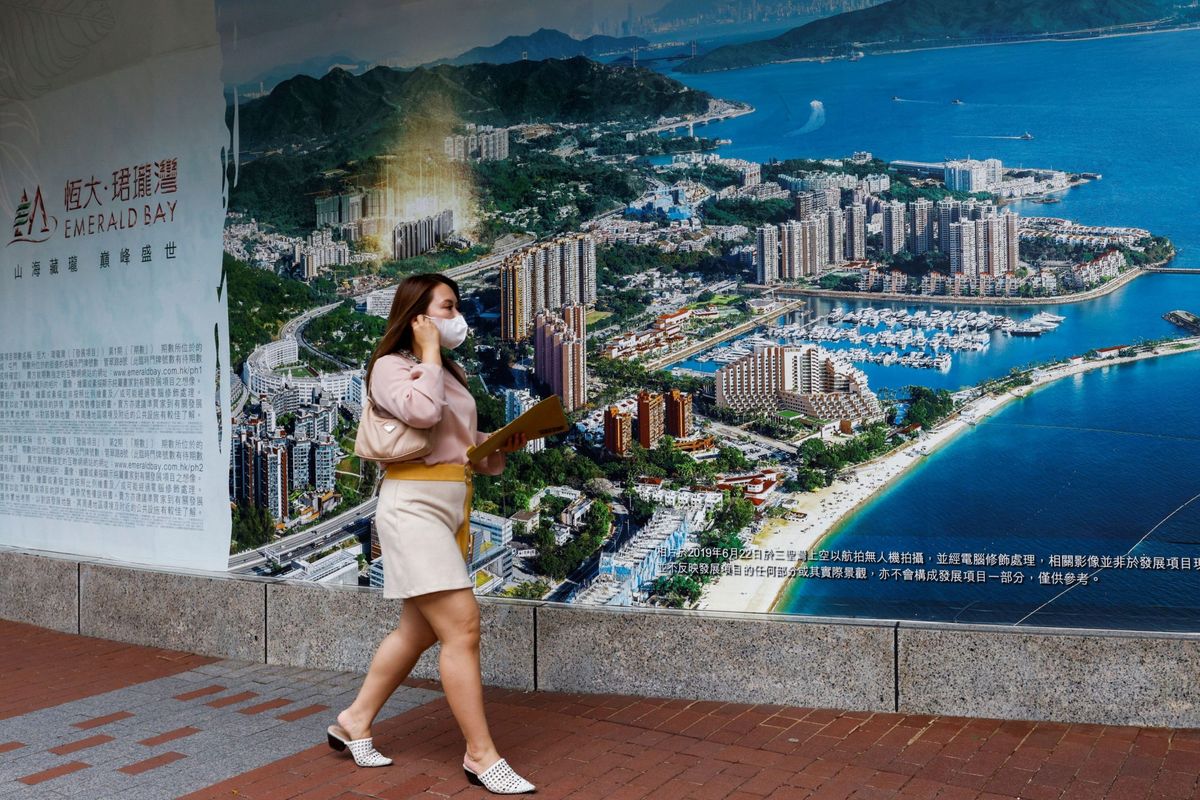What does the Huarong bailout mean for Evergrande?

A few minutes every morning is all you need.
Stay up to date on the world's Headlines and Human Stories. It's fun, it's factual, it's fluff-free.
Bond credit rating company Moody’s wrote, “Although Evergrande has been reducing its debt to improve its financial stability, the company still faces sizeable maturing debt and puttable bonds over the next 12-18 months.”
What happened to Huarong?
- Here’s a quick recap of everything we know so far: China Huarong Asset Management Co., or just Huarong, is a state-run distressed asset management company that was founded to help the Chinese economy.
- Basically, Huarong’s job is to acquire bad debt from other Chinese companies in order to try to make sure that these companies had nicer and cleaner books.
- Behind closed doors though, Lai Xiaomin, the former chairman and leader of Huarong, started to get a little greedy and took almost 1.8 billion yuan (US$277 million) worth of bribes as well as committing other forms of crimes, such as cheating on his partner.
- In the end, Lai was executed for his crimes and the company had to figure out a way to clean up all the mess that had been created during his time. Many wondered if the sinking ship was going to receive a bailout or left to perish.
- Fortunately for Huarong though, state-owned companies including Citic Group Corp., China Insurance Investment Co. and China Life Asset Management Co., agreed to help Huarong out with a billion-dollar bailout, which would also shift the control of the company to Citic.
What’s happened to Evergrande?
- Evergrande Real Estate Group seems to be in a very similar position as Huarong previous was in, as the company seems to have accumulated a huge amount of debt with little help on the horizon.
- Based on current estimates, the company owes over US$300 billion in bad debt, which is debt it probably can’t pay, at least anytime soon.
- The company started selling off chunks of itself in order to stay afloat, but recent problems have started to rise up after the company’s bonds were suspended.
- In fact, the company has about US$7.4 billion of repayments coming due next year and even though it has been offering steep discounts on its properties and other assets it owns to try and generate cash as soon as possible, their sales still fell 26% in August from last year.
- So far though, the Chinese government has stayed pretty quiet on whether it will help the real estate group out as it did for Huarong.
Why were Evergrande’s bonds suspended?
- Issuing and selling bonds, simply put, is just a way for a company to raise money. It’s pretty much the company saying to a potential investor, “give us some cash for a while and we’ll pay you back later with interest.”
- See, Evergrande has been trying to raise cash to pay off their massive debt by doing various things, such as by selling bonds (so essentially, just taking on more debt).
- The Shanghai Stock Exchange said in a statement that it had temporarily suspended trading in China Evergrande Group’s July 2022 corporate bonds following “abnormal fluctuations."
- This came after data showed the bonds sliding more than 25% to a low of 40.18 yuan (US$6.21), which came after the company’s ratings downgrade lowered the bonds’ value.
- A bond’s value can be rated as high as “AAA” to as low as “D,” and the rating is used to essentially judge how suitable a company is to borrow money and Evergrande’s rating, as you can imagine, has decreased significantly.
- Bond credit rating company Moody’s wrote, “Although Evergrande has been reducing its debt to improve its financial stability, the company still faces sizeable maturing debt and puttable bonds over the next 12-18 months.” This comes after the company also admitted that it ran the risk of defaulting on its loans if it couldn’t raise the amount of cash it needed on time.
How are people responding?
- The future for the company isn’t looking great, said Ivan Li to SCMP, fund manager at Shanghai-based Loyal Wealth Management.
- “The outlook for Evergrande is pretty pessimistic. The best outcome for Evergrande now is just to survive, not with promising growth. Plus, the government is apparently trying to cool down the entire property market,” said Li. “At this moment, it is just impossible for any rational investor to say Evergrande is worth buying.
- The central government has commented on the matter through the People’s Bank of China and China’s banking regulator, the China Banking and Insurance Regulatory Commission, in a joint statement.
- “Evergrande, as a top real estate company, must earnestly implement strategic arrangements made by the central government to ensure the stable and healthy development of the real estate market, and strive to keep operations stable."
What comes next for Evergrande?
- Huarong’s bailout could be a positive sign for Evergrande, since the company faced a similar predicament earlier this year and got a big bailout.
- The difference between these two companies is that Evergrande isn’t technically as needed by China. But also, the bad debt Evergrande has can simply be acquired by a bad debt manager such as Huarong.
- With their bonds slowly losing value and getting closer to becoming a “junk bond,” this outcome seems more likely, but nothing can be said for certain until the Chinese government decides to make a statement about the future of Evergrande.
- The company has US$7.4 billion worth of bonds to pay off by December of 2022, but with the value of their bonds dropping, sales of the company’s various properties decreasing 26% and it announcing that it may default on its loans, the clock is definitely ticking.
You drive the stories at TMS. DM us which headline you want us to explain, or email us at tips@themilsource.com







Comments ()